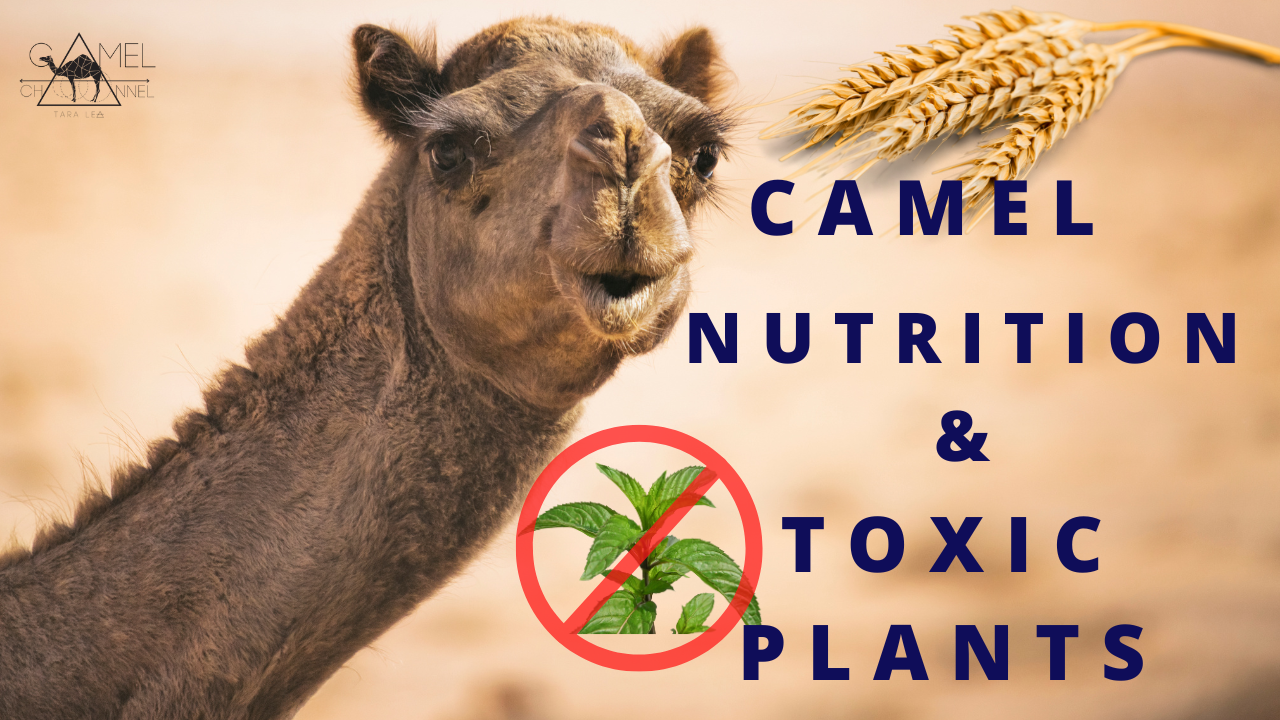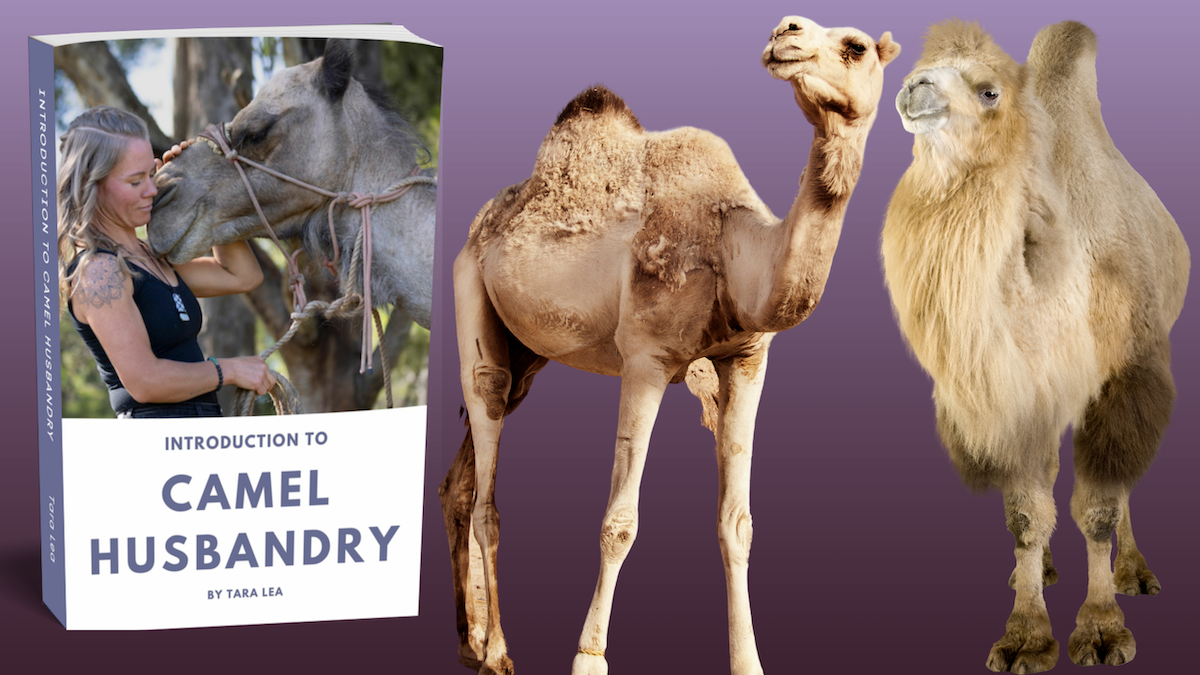Camel Nutrition & Toxic Plants
Sep 24, 2021
Most people ask, “What do camels eat?”
But the better question is: “What should camels eat?”
You also might have landed here to learn what plants are toxic to camels, all of which you'll discover in the post.
It’s easy to think of camels as “hardy desert survivors,” able to eat almost anything and thrive anywhere. But when camels are removed from their natural desert environment, that couldn’t be further from the truth.
Camels as "Weed Eaters"
Camels have earned their reputation as exceptional “weed eaters.” Their unique digestive system and browsing behavior mean they often prefer rough, fibrous plants and weeds rather than soft pasture grasses — a perfect adaptation to their desert origins.
Camels are Survival Animals
Meaning they’re experts at hiding illness. They often don’t show symptoms until they’re very unwell — by then, it can be too late. Nutrition plays a massive role in preventing health problems long before they start.
That’s why understanding proper camel nutrition is one of the most important responsibilities for any camel owner whether you want or already have camels as pets, working animals or co-grazers / land management.
Expert Insight from Camel Vet
Our resident Camel Vet, Dr. Margie Bale, shared from her Camel Vet Talk inside The Camel Academy, diving deep into what camels should (and definitely shouldn’t) eat.
⚠️ Plants That Are Toxic To Camel & Can Make Your Camel Sick
Tobacco Plant (Nicotiana tabacum)
Part of the Solanaceae family (the same as tomatoes and peppers).
Related plants to be cautious of:
-
Eggplants (Solanum melongena)
-
Tomatillos (Physalis spp.)
-
Petunias (Petunia spp.)
-
Million Bells (Calibrachoa spp.)
-
Angel’s Trumpets (Brugmansia spp.)
Symptoms:
Diarrhea and digestive upset.
💡 First-aid tip: For any potential toxin exposure, activated charcoal can help bind the toxins in the body.
Mix it with water to make a slurry and administer by tube or syringe (about 20 litres for an adult camel). Always contact a camel-knowledgeable vet immediately.
☠️ Plants That Can Be Deadly to Camels
Lantana
-
Red flowers: Most toxic
-
Yellow/orange flowers: Less toxic
-
Pink/white flowers: Least toxic
Symptoms:
-
Diarrhea
-
Liver toxicity
-
Yellowing under the tongue, around the vulva, or in the whites of the eyes
-
Sudden death (sometimes within 24 hours)
Poison Peach (Trema tomentosa var. viridis)
A forest plant from the Cannabaceae family (the same family as Cannabis, Humulus, and Celtis). Found across parts of New South Wales and Queensland.
Symptoms: Liver damage and neurological signs, often fatal.
Monensin - usually in pre-made livestock feeds
An antibiotic used in ruminant feed that is toxic to camels (and horses).
Always check labels on prepared or mixed feed bags before feeding.
🌿 Other Plants to Watch Out For
-
Passionfruit vine – can upset the digestive system
-
Ryegrass – overfeeding or feeding without gradual introduction can cause Ryegrass Staggers and hallucination-like behavior
🐫 Why Camel Nutrition Matters
Camels are not like horses, cows, or sheep — and their diet shouldn’t be either.
A camel’s digestive system is unique, and feeding them the wrong plants or feeds can have devastating effects on their health.
Learning what to feed and what to avoid isn’t just about preventing sickness — it’s about supporting their energy, digestion, and longevity.
📘 Want the Complete Guide?
This article is just a starting point.
👉 For a comprehensive guide to camel nutrition, toxic plants, supplements, and feeding formulas, grab your copy of my Introduction Camel Husbandry Book.
📺 And to go even deeper, watch the full Camel Vet Talk with Dr. Margie Bale inside The Camel Academy — where we cover camel diets, health management, and real-world case studies to keep your camels thriving.
Join now or start your free trial here: camelchannel.com/membership
You might be surprised to learn that many of us are feeding our camels backwards!
So, grab a notebook — this is where your camel-care knowledge gets a serious upgrade.
Watch the entire comprehensive camel vet talk on Camel Nutrition & Toxic Plants by becoming a member of the Cameleer Academy online membership where Margie is resident camel vet and shares different Camel Vet topics every month!
🐫 Camel Vet Talks (and Q&A)
🐪 Camel Vet Procedures
🐫 Camel Handling Techniques
🐪 Camel Psychology
🐫 Camel Husbandry (latest & greatest) Info
🐪 Camel Equipment Making workshops (your personal 'camel shop')
➕ So much more
CLAIM FREE TRIAL
Happy Camel Connecting!

Get Your Free Copy:
Introduction to Camels eBook
We hate SPAM. We will never sell your information, for any reason.




